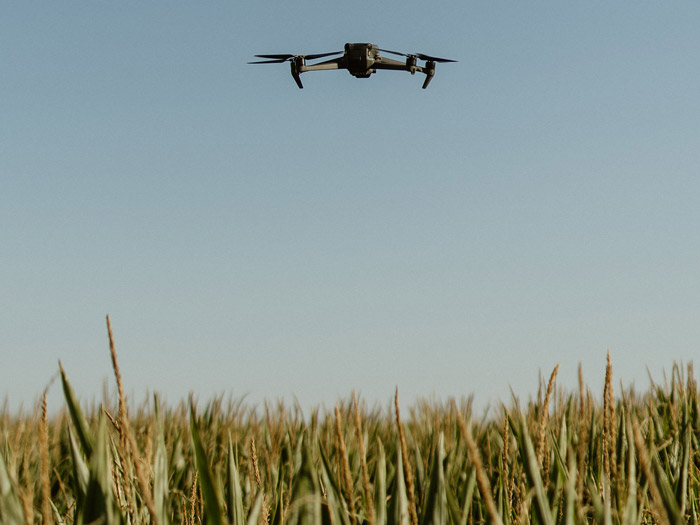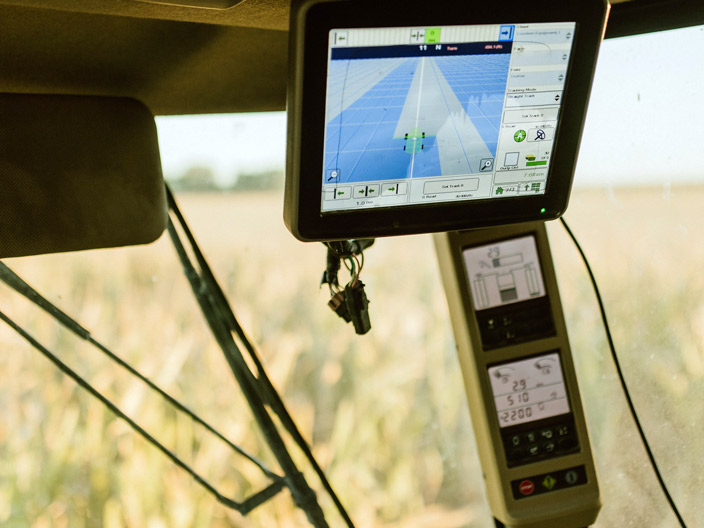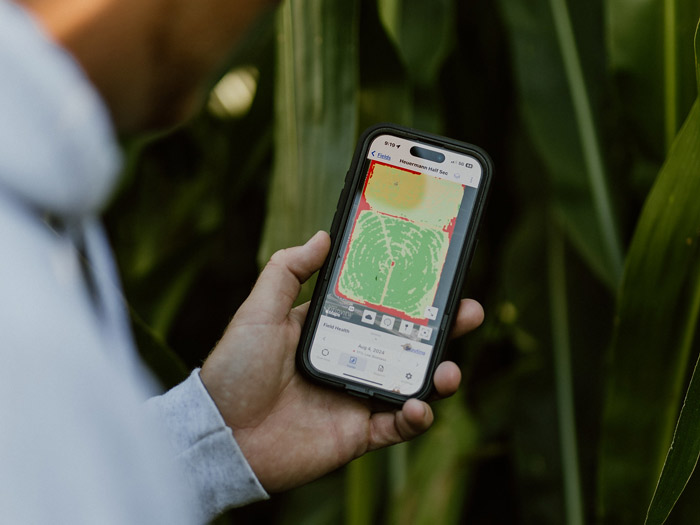Home / Corn 101 / Corn Innovation / Smart Technology
Smart Farming Technology & Corn Farming
Farming technology is reshaping the way corn is grown across Nebraska. Today’s farmers increasingly combine generations of knowledge with precision farming tools to grow corn that feeds and fuels the world.
From GPS-guided tractors to tech that supports precise, data-driven decisions, this innovative agricultural technology is rooted in everyday work. With drones and satellites monitoring crop health from above and sensors measuring soil moisture below, Nebraska growers are using this smart farming technology to grow healthy, high-quality crops—and doing it more efficiently than ever.
Drones

The general public often uses drones for photography and videography, but drones serve multiple purposes in agricultural fields. How are drones used in farming? In Nebraska, agricultural drones are increasingly used to increase speed and efficiency. From crop scouting to delivering treatments to plants damaged (or affected) by insects or disease, they can be a vital tool to save time and resources.
GPS Technology

Precision farming is a data-driven approach that uses advanced farming equipment and technology to improve decision making. At its core are GPS systems (global positioning systems) and GIS (geographic information systems), which generate detailed maps to boost efficiency and sustainability. The GPS technology farmers use is the same technology used by cars and smartphones!
- Real-time GPS mapping allows precise application of seed, fertilizer, plant protection products and water only where needed
- Auto-steering guided by GPS ensures straight rows, which cuts fuel use, time and operator fatigue
- Variable-rate seeding and fertilization based on GPS data optimizes input use and soil health
- GPS tools like section control prevent overlap by tracking field boundaries and stopping planting, fertilization and other activities at the boundary lines
Smart Farming Sensors & Remote Control

Sensors and remote control are a growing part of agricultural technology, helping corn farmers track factors like soil moisture, plant health and nutrient levels in real time, depending on the time of year and the need. These sensors send data to connected devices and software, allowing farmers to make more informed decisions based on what’s happening in their fields at that exact moment.
When paired with remote control systems, these sensors enable farmers to monitor and operate systems like irrigation equipment, grain handling systems and grain storage bins from anywhere—often using a smartphone app—to increase efficiency, reduce waste and improve yields.
Autonomous Tractors
Manufacturers are developing autonomous tractors—self-driving machinery that can plant, till and spray without a driver in the cab. While not yet widely used, this technology has the potential to save time, reduce labor shortages and improve efficiency. These tractors use GPS, sensors and cameras to stay on course and perform field tasks with precision, even during long or overnight hours.
Future Farming Technology Innovations … The Sky is the Limit
Modern farming technology is evolving to make corn production more precise and sustainable. While time will tell about the future of technology, using AI in agriculture, future systems may “see” the difference between healthy and plants needing nutrients, identifying specific diseases before plants show signs of stress. Robots may someday handle harvesting tasks, and farmers may someday use laser systems to remove weeds instead of using chemicals, helping reduce input costs and promote environmental stewardship.
While precision agricultural tools open new doors, it’s the farmer’s insight that still drives success in the field. Smart farming technology doesn’t replace know-how and hard work, it enhances it, offering new ways to apply trusted skills in modern systems.

